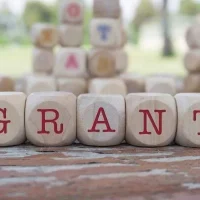Deadline: 30-Mar-22
European Commission is calling for proposals for Building and Renovating by Exploiting Advanced Materials.
Scope
Proposals should address and demonstrate several of the below activities:
- Demonstrating that new insulation materials (not external cladding) will have reduced embodied energy, lower CO2 emissions and improved insulation properties during operation, and are cost effective, environmentally safe, fire resistant and can be easily applied on existing surfaces (e.g. spray coating);
- New components should also contribute to improve indoor air quality, by limiting VOCs emissions and/or by advanced properties aiming to absorb and biodegrade indoor contaminants;
- Enhanced durability for increased use duration, reduced maintenance and consequently reduced costs, respect of sustainability principles (the sustainability of each developed solution should be evaluated via life cycle assessment studies carried out according to the International Reference Life Cycle Data System – ILCD Handbook);
- New components should have to be lightweight construction with an ease of installation and provide for increased comfort and noise reduction, and find application to both new build and renovation and deliver realistic solutions at a reasonable price;
- Energy efficiency should be addressed by system integration and installation, exploiting synergies between technologies, which proved valid at a small scale and need a larger scale demonstration;
- Synergy with existing relevant Open Innovation Test Beds is encouraged;
- Clustering and cooperation with other relevant projects is strongly encouraged; in particular, liaison and synergies with the Horizon Europe Partnership on ‘People-centric sustainable built environment’ and Build4People.
Funding Information
The check will normally be done for the coordinator if the requested grant amount is equal to or greater than EUR 500 000, except for:
- public bodies (entities established as a public body under national law, including local, regional or national authorities) or international organisations; and
- cases where the individual requested grant amount is not more than EUR 60 000 (lowvalue grant).
Expected Outcomes
Projects are expected to contribute to the following outcomes:
- Buildings are responsible for approximately 40% of energy consumption and 36% of CO2 emissions in the EU. Renovation of existing old buildings has the potential to lead to significant energy savings – potentially reducing the EU’s total energy consumption by 5-6% and lowering CO2 emissions by about 5%;
- Compared to state of the art materials and components, the newly developed materials should deliver:
- Reduction by at least 30% of the embodied energy and CO2 at component level;
- Improvement by at least 20% of insulation properties;
- Reduction by at least 15% of the total costs compared to existing solutions;
- Demonstration of at least a 5% reduction of the energy spent during the whole life cycle of a building.
- Increased durability and lifetime, lower maintenance costs and environmental footprint.
- Demonstrate innovative retrofitting solutions using the building insulation materials as real cases approaching net zero energy standards and their replicability potential;
- Improvement of the quality of information from product manufacturers to facilitate better decision making;
- Strengthening of the competitiveness of the European construction sector in the field of “green” construction technologies;
- Sustainable building materials will be supporting the circular design. Self-sustaining buildings in respect to energy usage;
- New insulation materials should be cost effective, environmentally safe, fire resistant and can be easily applied on existing surfaces (e.g. spray coating);
- Return on investment should be below 7 years for deep retrofitting of buildings;
- Advent of a new generation of skilled workers and SME contractors in the construction sector aware of the need of a systemic approach towards energy efficiency should be promoted through the proposed activities.
Eligibility Criteria
To be eligible for funding, applicants must be established in one of the eligible countries, i.e.:
- the Member States of the European Union, including their outermost regions;
- the Overseas Countries and Territories (OCTs) linked to the Member States;
- eligible non-EU countries:
- countries associated to Horizon Europe
- low- and middle-income countries
For more information, visit https://bit.ly/3j2BFsJ





![Call for Applications: “Voices in Motion” Program [Sri Lanka] - fundsforNGOs Call for Applications: “Voices in Motion” Program [Sri Lanka]](https://www2.fundsforngos.org/wp-content/uploads/2023/04/dance-200x200.jpg)



































